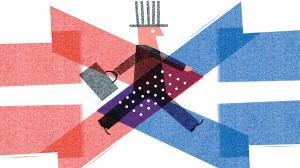Stay updated with the latest - Click here to follow us on Instagram
US researchers come calling to study effects of abacus
Researchers from top US universities are in Vadodara to study the effects that the use of abacus can have on the overall development of students.
Researchers from top US universities are in Vadodara to study the effects that the use of abacus can have on the overall development of students.
A group of six researchers from Harvard University,University of Stanford,University of California San Diego (UCSD), and University of Chicago are taking up the study.
The research will compare and analyse the skills of over 100 students over a period of three years.
We are into a multi-layered study. Our one such hypothesis is to see whether the use of abacus to solve mathematical problems also develops other skills like increase in the attention span,the speed of processing information,besides helping them improve their grades in other subjects, said David Barner,Assistant Professor of Psychology,UCSD.
Prof Barner added that they also want to see if the affect persists throughout the students life even after they stop using the abacus.
On selecting India as their place of research,he said,The focus on maths in the education system of the United States is not as strong as it is in India because of which we chose to conduct our study here.
As part of the study,the researchers will be working with students from the city-based Zenith school and Universal Concept of Mental Arithmetic System (UCMAS) where group of students using abacus for calculations will be compared to those not using this calculating tool.
We are also looking into the cognitive ability of the students to study as to how some people remember a lot of things at a time while others remember just a few things, said George Alvarez,Assistant Professor,Harvard University.
As applying abacus and mental arithmetic leads to increased use of gestures among students,the researchers will be conducting another set of study to measure gestures in a person.
Every person uses gestures during interaction,but abacus incorporates a system of gestures while solving problems. We are looking into facts like how does gesture help a person to think,how does gestures of a student using abacus differ from a person not using the tool,and how the former uses gestures in interacting,apart from solving mathematical problems, said Michael Frank,Assistant Professor,University of Stanford.
The National Science Foundation,USA,is funding the research.







